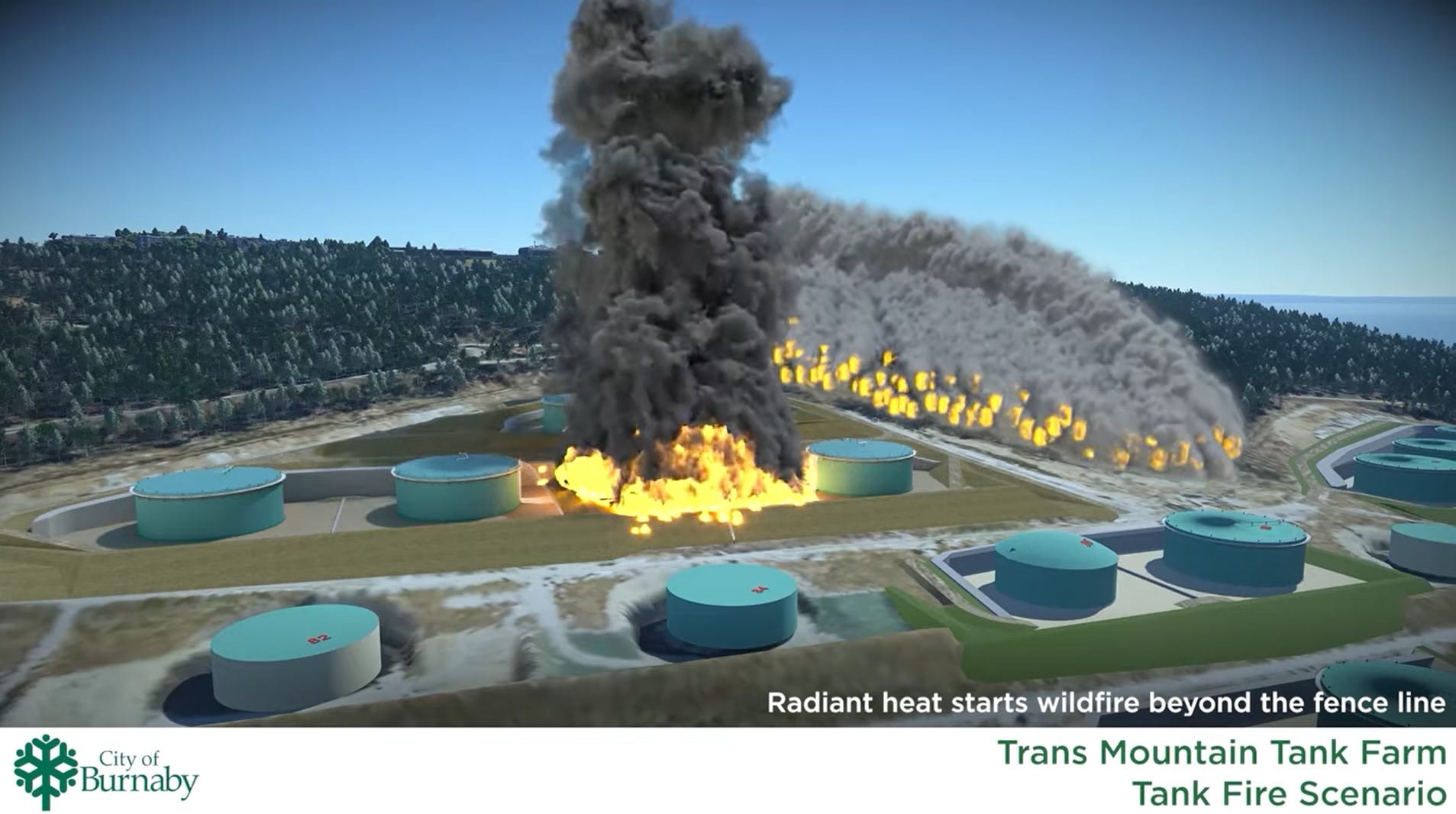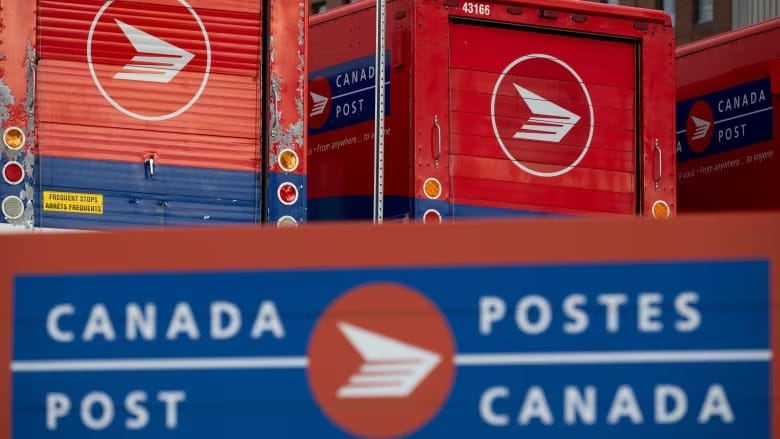Explosion, spill, or fireball? Getting ready for potential TMX catastrophes
“While the probability of a potential major event happening at these facilities is low, the City has sought to strike a balance that acknowledges that such an event could still occur,” stated a September 5 press release from Burnaby.

The City of Burnaby is taking steps to prepare for a series of unlikely yet potentially catastrophic accidents related to the Trans Mountain pipeline system.
On September 5, the city released an animated video that outlines three hypothetical, fiery disaster scenarios that could occur at the Burnaby Mountain tank farm and the Westridge Marine Terminal.
To better prepare for these worst-case events, the city plans to conduct a full-scale emergency exercise in 2027.
“While the probability of a potential major event happening at these facilities is low, the City has sought to strike a balance that acknowledges that such an event could still occur,” stated a September 5 press release from Burnaby.
The video animation, created by ONEC in 2021, is based on the terminal’s operations prior to the recently completed Trans Mountain expansion, which has since tripled the capacity of the pipeline system and increased oil tanker traffic tenfold.
The first animated scenario demonstrates how an earthquake could lead to a crude oil spill at the Burnaby Mountain Tank Farm.
The oil could catch fire, causing the tank to explode, with the potential for a dangerous "boilover."
In a boilover, rising fuel temperatures reach water at the bottom of the tank, creating steam and causing a violent eruption that sends burning oil into the air.
Whether the event results in a full surface fire or a boilover, nearby tanks would be at risk, and the fire could spread beyond the tank farm, potentially starting a wildfire.
According to the city’s 2021 risk assessment, a boilover would be fatal for anyone within 250 metres of the tank.
The second scenario involves a spill from the jet fuel tanks at the Westridge Marine Terminal near Burrard Inlet. While it shares similarities with the first scenario, including the tank roof blowing off and fire, there is no risk of a boilover.
However, the presence of propane tanks poses another hazard, as the heat from the jet fuel fire could cause them to explode into a “massive fireball,” with the fatality zone extending 158 metres from the blast.
The third and final scenario focuses on a loading arm failure at the marine terminal, leading to a fire between the tanker and the berth.
According to the city’s risk report, these loading arm malfunctions can cause fires or oil spills that would have significant environmental and shipping impacts.
Several municipalities, including Burnaby, New Westminster, and Vancouver, opposed the Trans Mountain pipeline expansion, as did the Squamish Nation, Coldwater Indian Band, and Tsleil-Waututh Nation.
Despite this opposition, the expansion has been completed and is fully operational.
“Regardless of our past opposition, the Trans Mountain expansion is complete and fully operational,” Mayor Mike Hurley said in the press release. “With increased oil transport comes increased risk.
We want to fully understand the risks, increase our capacity to respond, and ensure we have the right partners at the table to support a safe, reliable, and timely emergency response.”
The City of Burnaby is now working on a strategy to conduct the emergency exercise and will provide updates as planning advances. In preparation for the pipeline expansion, the city has invested additional resources in improving emergency response capabilities.
This includes redeveloping an existing fire hall and building a new fire station at the top of Burnaby Mountain, which is nearing completion.
Both fire stations will be equipped with specialized wildfire firefighting equipment, such as ATVs and large-scale deployable sprinkler systems, according to the city.





